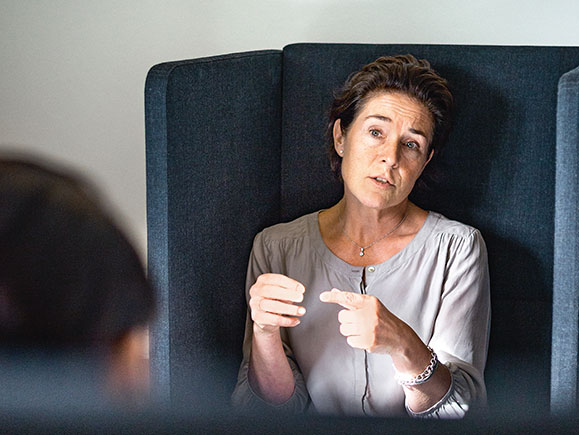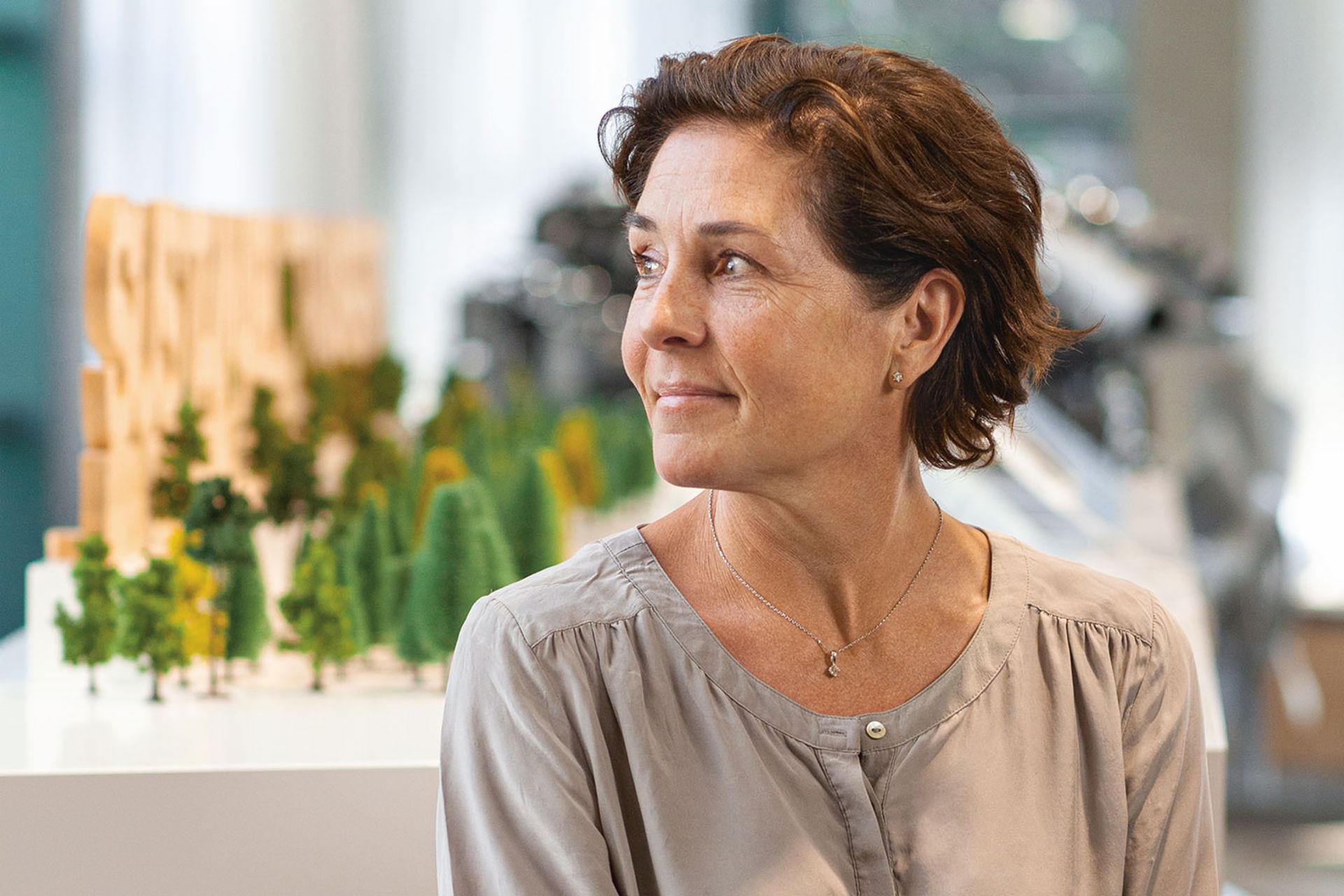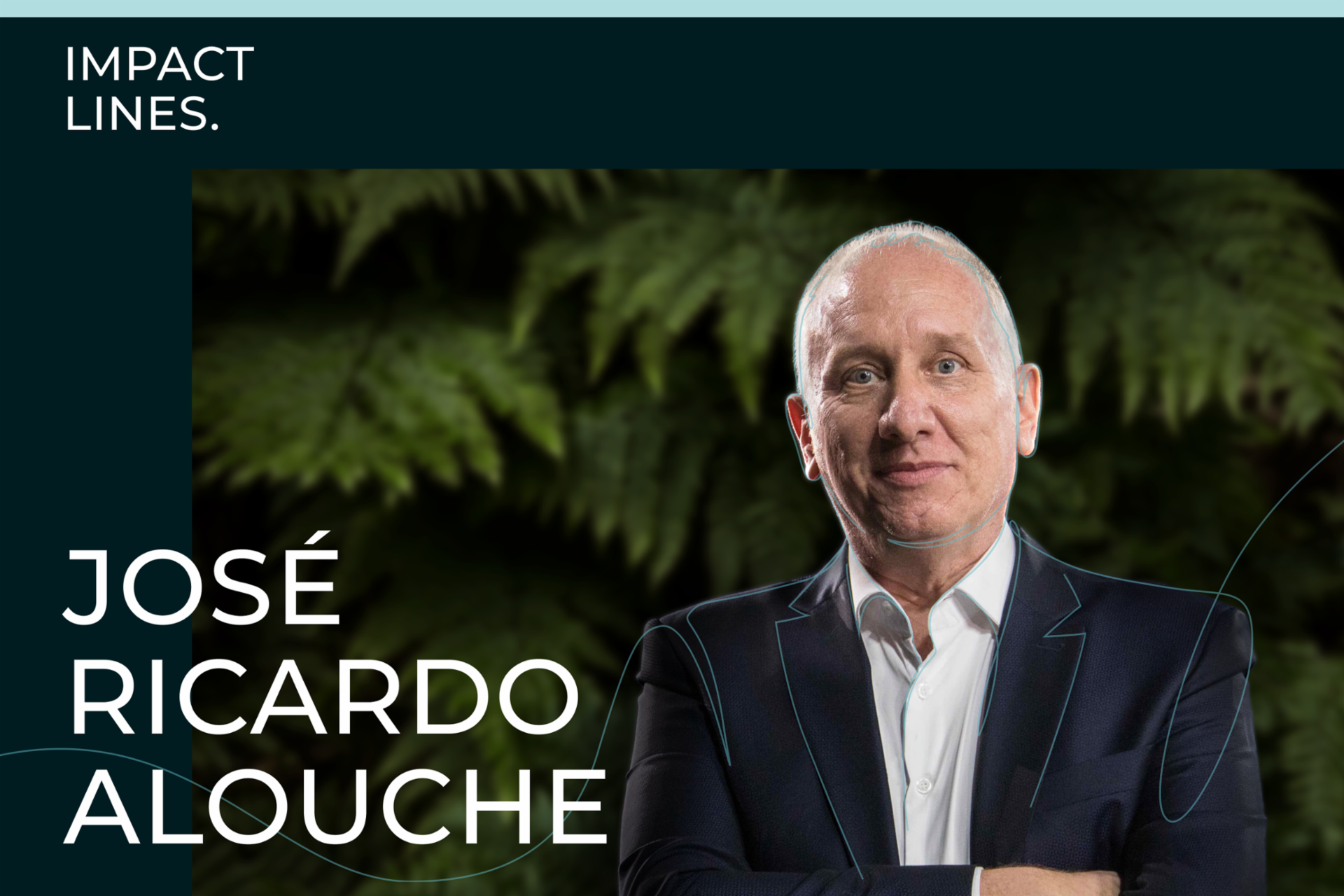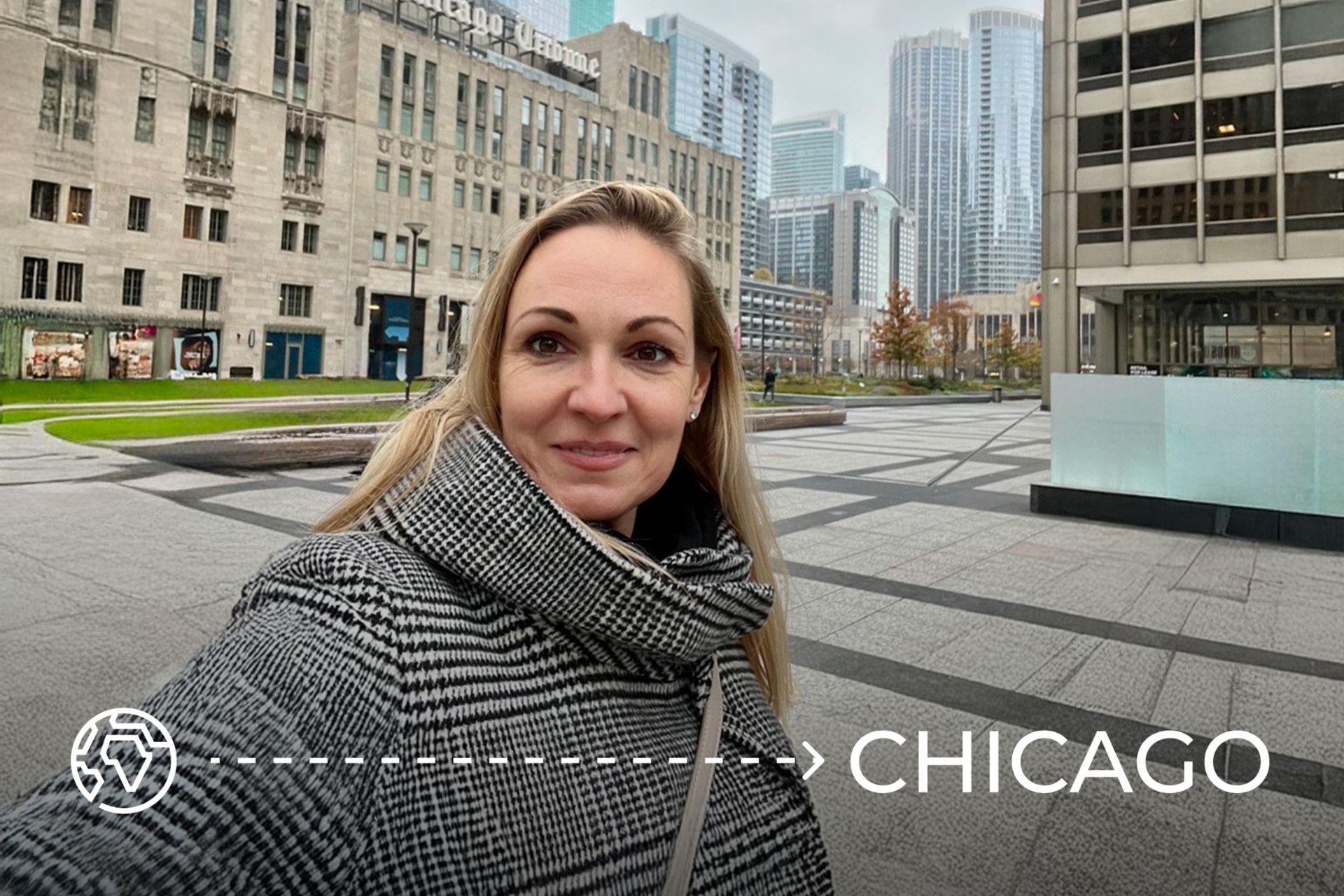The attractiveness and innovative strength of an organization is largely dependent on how well it recognizes the individuality of its employees. That is why the TRATON GROUP has embedded the core principles of pluralism and inclusion in its corporate culture. So what exactly does that mean? And how do these principles translate into practice? We chat to Sofia Vahlne, Head of Labor Affairs at Scania, who is responsible for the “Pluralism & Inclusion” program within the TRATON GROUP.

There is currently a lot of talk about diversity, pluralism, and inclusion. What do these terms mean and how do they differ from each other?
So that is why you don’t use this term at all.
81,000The TRATON GROUP has 81,000 unique perspectives—one for each of its employees.
And how does inclusion fit into the picture?
SV: In a well-balanced team you will have, for example, extroverts and introverts. That’s actually the way it’s meant to be because both types of people complement each other on the team. And this is exactly where inclusion comes in. In order to really be able to realize the potential of these teams, you need an environment where people can be who they really are. We have to create a psychologically safe environment where introverted team members, or people who have a completely different background to the majority of others in their team, can be heard in the same way as the extroverts, who might be more listened to anyway.
So do you mean to say that inclusion is actually the key to a successful team?
SV: If we aren’t successful at embodying inclusion, then we don’t even have to start the conversation about diversity and pluralism. I’ll use the following analogy: if diversity means inviting people to a party, then inclusion means inviting them to dance. There is a big difference. For example, I can make every effort to set up a team with the same number of male and female team members. But that won’t make a difference if then the female perspective is not heard. Inclusion creates a corporate culture where each individual can apply themselves just as they are.
Within the TRATON GROUP, there is a great diversity of people working together under the MAN, Scania, and Volkswagen Caminhões e Ônibus brands. How has the Company already evolved because of this?
SV: At the beginning, it was perhaps quite challenging to overcome longstanding ways of thinking. But we quickly recognized that we are all different. We have different corporate cultures and different influences. During our interactions, we quickly realized that this is not a disadvantage, but rather a great advantage. And that is because we can learn from one another. In a homogeneous group where all march to the same beat, collaboration is at first easier, of course. Acknowledging differences means accepting greater complexity, which perhaps leads to needing more time to find a solution. But more often than not, the outcome is better.
“If diversity means inviting people to a party, then inclusion means inviting them to dance. There is a big difference.”Sofia Vahlne
Head of Labor Affairs, Scania

Sofia Vahlne is responsible for the “Pluralism & Inclusion” program within the TRATON GROUP.
What are the advantages as a result?
What role do pluralism and inclusion play when attracting new talent for the TRATON GROUP?
How important is it for the innovative strength of a company to embody these values authentically?
What specific measures are you currently implementing?
How do you deal with skeptics who refuse to accept pluralism—perhaps only behind closed doors?
SV: In principle, everyone has the right to express their opinion. To disallow criticism from the outset would immediately defeat the purpose of pluralism and inclusion. We are open to discussion. Nevertheless, at work, everyone must respect their coworkers and clients. The TRATON GROUP has corporate values that we all must live by. Pluralism and inclusion are an essential part of those.

SOFIA VAHLNE,
Head of Labor Affairs at Scania and coordinator of the TRATON GROUP’s “Pluralism & Inclusion” program
Sofia Vahlne joined Scania in 2005 as a labor laywer and was appointed Head of Labor Affairs in 2012. In addition to the “Pluralism and Inclusion” program, her area of responsibility also includes labor relations, people sustainability, HR compliance, organizational development, and innovation. Vahlne was previously employed as a labor lawyer in a company and an association.
Vahlne has a master’s degree in law from Uppsala University. In addition to spending time with her two daughters and friends, Vahlne devotes her free time to holistic health, consisting of things like yoga, jogging, meditation, and healthy food.










.jpg/jcr:content/Teaser-Grafik-Tiva-Sharifi-3840x2560-V1-(1).jpg
)
.jpg/jcr:content/Teaser-Grafik-Mansoureh-3840x2560-V1-(1).jpg
)
